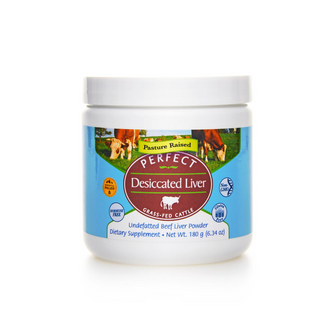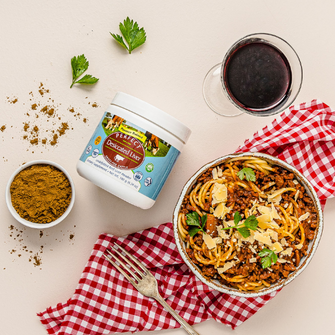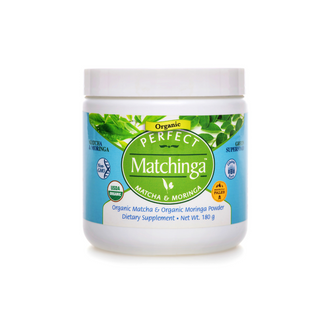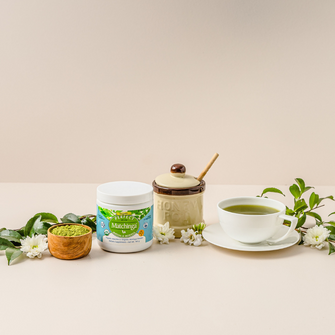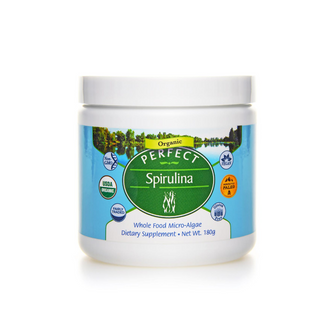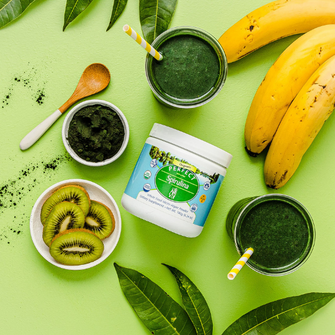Categories
Kale was really trending in smoothies many years ago and I still (to my surprise) see some "health experts" promoting it in smoothies (gasp) because it's not as healthy as it's touted to be.
I must confess though (in all honesty), many years ago, I too was fooled into thinking kale was healthy in smoothies but after experiencing frequent digestive issues (after one of these smoothies), I began to investigate further...
What I found was revealing and in my opinion, counter-intuitive to health and wellness.
After all, we do these things in the belief that it's adding health and vitality rather than taking away.
Organic Vs Conventionally Grown
First up, if you're not eating organic kale forget about adding this to your shopping trolley! Conventional kale is loaded with toxic pesticides, glyphosate and heavy metals such as thallium (even low exposure to this chemical can cause nausea, diarrhoea, stomach pain, hair loss, and peripheral neuropathy).
Oh Kale no!!!

Anti-nutrients
Kale contains the anti-nutrient oxalic acid. Anti-nutrients are naturally-occurring chemicals in the plant that act as natural pesticides but that can also prevent us from properly absorbing the actual nutrients from the vegetable. That is why vegetables must be properly prepared before consuming (and not raw, as we are led to believe by popular culture).
If you are adding raw kale to your smoothies this can give you a belly ache as raw kale is extremely difficult to digest! It is also high in oxalates/oxalic acid. Oxalic acid is a colourless toxin that serves to protect kale from insects, fungi and predators. When too many oxalates are consumed, they can accumulate in the body and cause issues (such as kidney stones).
There is a safe way to consume kale in smoothies though (if you cannot give up your kale smoothies)? and that is Organic fermented kale powder by Perfect Supplements. You can find it here.
Kale is NOT a Superfood
I'm not sure at what point in time kale got knighted a "superfood" (or whom first claimed this status for kale) but it is not true.
For a food to be a real authentic super food, it needs to be incredibly nutrient-dense and only add nourishment (and not take away/prevent nutrition). Because raw kale contains the anti-nutrient oxalic acid, this can interfere with nutrient-absorption so this (in my opinion) keeps it out of the superfood category.
Kale is a pseudo-superfood (fake superfood), marketed as incredibly nutritious and when properly-prepared, it can be very nutritious but raw in smoothies or salads it is not!

There is a superfood though that ticks all the boxes (you may or may not want to put it in a smoothie though) but it is one of the most nutrient-dense foods on the planet and it deserves every bit of its superfood status and that is...
Liver!
Liver is one of the most nutritious foods on planet earth and you'd be hard-pressed to find one greater than it in the nourishing foods department! Nothing in the plant kingdom compares (though spirulina, matcha and moringa come close). More about that soon...
Liver contains ZERO anti-nutrients (like raw veggies can) and is completely absorbable and highly nourishing! In fact, adding liver (or a liver supplement) to your diet can really help to fill in many nutritional gaps that you can't even get from a 100% organic plant-based diet.
Nutrients such as vitamins A, C and D, B vitamins, choline, copper, coQ10, DHA, EPA, folate, iron, magnesium, selenium, sodium, phosphorus, potassium, protein, amino acids and zinc.
You do NOT get vitamin A from veggies - despite what we are told, it's inaccurate information. You get beta-carotene from veggies which then has to be converted into vitamin A and the problem is, many people aren't very good converters.
You are much better to obtain vitamin A from animal sources such as grass-fed organic butter, organic pasture-raised eggs, fermented cod liver oil and liver.

Spirulina
Oh how I digress sorry... When I get started on this topic, it is very hard to stop myself but back to the smoothies...
So since I gave up on kale smoothies (many years ago), I felt I needed to replace the kale with something green (and no, spinach is just as bad), so I decided that I'd replace the kale and other leafy greens with spirulina.
I also love to add Matchinga but more on that soon...
Spirulina is a microalgae and is loaded with goodness and no anti-nutrients. It's a super powerful cleanser and detoxifier (like chlorella) and contains nutrients such as chlorophyll, omega-3 and 6, vitamins C, E and K, beta-carotene, B vitamins, choline, calcium, copper, iron, manganese etc.
Adding spirulina to ones diet (smoothies is the easiest way) can add so much vitality, better digestion, energy, detox and wellbeing to each day! It's definitely a winner!

Matchinga
Matchinga is the "Perfect" blend of organic matcha green tea powder and organic moringa leaf powder. This combination is so much more powerful than just having either or on their own.
Let's discuss just some of the reasons why...
Matcha: Matcha is Japanese green tea leaves that's been ground into a find dissolvable powder that you can add hot water to (to make a delicious tea) or add to things like smoothies for a quick and simple way to gain a lot more nutrition in your day.
Matcha contains catechins (compounds that act like antioxidants), as well as polyphenols, chlorophyll, vitamin C and E plus complex Bs.
Matcha also contains calcium, chromium, copper, magnesium, manganese, phosphorus, sodium and zinc.
It's a known natural energiser so it can give you the lift you may seek in the morning or through the day and helps to assist in many areas of wellbeing such as:
- Inflammation
- Skin health
- Brain function and focus
- Mood
- Liver health
- Weight
- Heart health
And much more!
Moringa: Moringa has been used traditionally in India for centuries for it's wonderful healing benefits and life-affirming properties.
The leaves of the moringa plant are dried out and ground up to make a fine powder that many people like to add to juices or smoothies.
Like matcha, it contains many vitamins, minerals and antioxidant compounds.
To learn more about moringa, be sure to click here.

To Conclude
I hope this article helped to shine some light on the risks of consuming raw kale but also give you some alternatives today? If you would like an example recipe and not sure where to start, be sure to check out my recipe for 'Coconut & Spirulina Green Smoothie' here.
References:
https://chriskresser.com/the-dark-side-of-green-smoothies/
https://daveasprey.com/4-top-antinutrients-to-avoid-and-why/
https://www.organichealthfact.com/side-effects-of-kale/
Disclaimer: the information in this article is intended purely as information and not health advice. It is not intended to treat, diagnose, prevent or cure and one should always seek expert advice from their trusted health practitioner.


